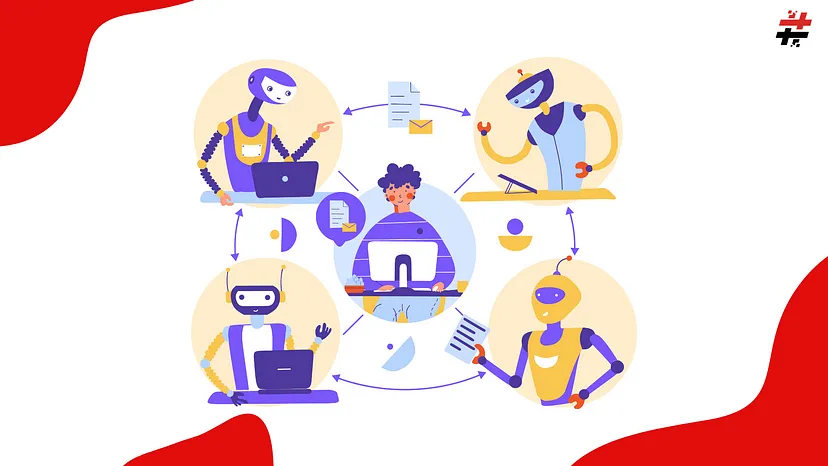Difference Between an Agent, Autonomous Agent, AI Agent, and Autonomous AI Agent
- Author:Hashtrust Technologies
- Published On:Dec 13, 2024
- Category:AI Agents

In the world of technology, terms like “agent,” “autonomous agent,” “AI agent,” and “autonomous AI agent” are often thrown around, but they can be confusing, especially when they sound similar.
Let’s break down what each of these terms means in a way that’s easy to understand, even if you don’t have a technical background.
1. Agent
An “agent” is a general term used to describe any system or program that acts on behalf of someone or something. Think of an agent like an assistant that does tasks for you. In technology, agents are typically software programs that are designed to perform specific tasks automatically.
Example: A basic software agent might help manage your emails by sorting them into folders. It acts based on predefined rules, but it’s not very “smart” — it just follows instructions that were given to it by a programmer.
2. Autonomous Agent
An “autonomous agent” takes things a step further. These agents don’t need constant supervision. They can make decisions on their own based on the environment or situation they find themselves in. They’re more independent because they have rules or logic built into them that allow them to respond to different situations without needing direct input from a user.
Example: Imagine a robot vacuum cleaner that moves around your house. It’s an autonomous agent because it can decide on its own where to clean, avoid obstacles, and return to its charging station when the battery is low — all without you needing to tell it exactly what to do every step of the way.
3. AI Agent
An “AI agent” is a type of agent that’s powered by artificial intelligence (AI). These agents are not just following set rules or logic; they use AI to learn, adapt, and improve over time. AI agents can analyze data, recognize patterns, and make decisions based on what they’ve learned. They’re “smarter” than regular agents because they can handle more complex tasks and improve their performance the more they interact with their environment.
Example: A chatbot that can answer customer questions on a website is an AI agent. It can learn from past interactions to give better answers, and it can handle more difficult questions over time as it gets better at understanding what customers are asking.
4. Autonomous AI Agent
An “autonomous AI agent” combines the autonomy of an autonomous agent with the intelligence of an AI agent. This means it can both make independent decisions and learn and adapt from the environment. These agents are powerful because they don’t just act based on rules or patterns; they can improve their decision-making process over time, becoming more efficient and effective without human input.
Example: In a self-driving car, an autonomous AI agent is responsible for analyzing traffic, avoiding obstacles, making decisions about speed and direction, and even improving its driving skills over time based on the experiences it has on the road.
The terminology around agents can seem complicated at first, but hopefully, this breakdown helps clarify the differences.
- Agent : A basic program that performs tasks on behalf of a user. Think of it like a virtual assistant that follows instructions based on set rules.
- Autonomous Agent : A more advanced system that can operate independently, making decisions on its own based on its environment without constant human input.
- AI Agent : Powered by artificial intelligence, this agent learns, adapts, and improves over time. It goes beyond basic rules, using data to enhance its decision-making capabilities.
- Autonomous AI Agent : The most advanced type, combining independence and intelligence. It not only acts on its own but also learns and evolves, becoming more effective with every interaction.
Hashtrust: Your Partner in Building Cutting-Edge Autonomous and AI Agents-Based Solutions
Are you exploring the potential of autonomous agents or AI agents for your business? Whether you’re looking to build a proof of concept (POC) or need to scale your development team with remote experts, Hashtrust has the experience and skills to turn your vision into reality.
We’ve successfully delivered numerous projects in this space, helping businesses harness the power of AI to automate tasks, optimize operations, and drive innovation.
Our expert developers are skilled in crafting intelligent, autonomous systems that don’t just follow rules but learn and adapt to your unique business needs. From concept to execution, we’ll work with you every step of the way to ensure your project’s success.
